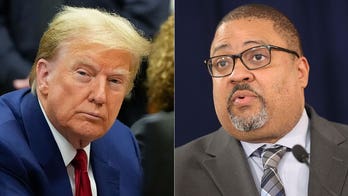Iraqi Prime Minister Nouri al-Maliki suggested Thursday that U.S. troops could stay in the country beyond 2011 under agreements between the two countries.
"The security relations between the Americans and the Iraqis ... is a relationship based on co-operation and all the foundations and rules that were put forth in the agreements," he said in a speech at the U.S. Institute of Peace. "Nevertheless, if the Iraqis require further training and support we shall examine this at that time, based on the needs of Iraq."
But Obama is sticking to his vow to pull all U.S. forces out of Iraq by the end of 2011 despite the recent increase in violence.
Visiting Washington this week, al-Maliki is under pressure to show evidence of national reconciliation efforts, particularly ahead of Kurdish regional elections this weekend. Kurdistan is at odds with the Iraqi centralized government over stalled oil laws and disputed territories, with Kirkuk a source of particular tension.
Iraq's own national elections, which will determine the membership of the 275 strong parliament have been moved up to Jan. 16.
Al-Maliki acknowledged the depth of political and ethnic tensions that still trouble Iraq but said they must be solved by constitutional means and not by force.
However, he drew a clear distinction between political opponents and former actors who had used violent means.
"From our part we open the door of political reconciliation to all those who wish to return to the national political scene, but those who are responsible for killings must first stand before judicial branch and be accountable for their crimes," he said.
His comments came a day after meeting with Obama at the White House, his first visit there since Obama took office. After their meeting, Obama said the U.S. was committed to "providing training and support for Iraqi security forces that are capable and non sectarian."
The U.S. "will move forward with our strategy to responsibly remove American combat brigades from Iraq by the end of next August and fulfill our commitment to remove all American troops from Iraq by the end of 2011," Obama said.
But when asked about reported communication between U.S. officials and Iraqi opposition groups, al-Maliki used strong language.
"The U.S. government and President Obama are keen on avoiding any cooperation with those who killed American or Iraqi soldiers and civilians," he said. "Therefore, it is highly unlikely that the American administration or anyone who represents it would negotiate with these killers.
"But there are some circumstances and it's very normal for us to communicate with the Americans whenever there are any problems here and there and there are no major issues in this area," he said.
Local reports say that that Iraq's Council of Ministers is formally requesting for a clarification from Embassy Baghdad regarding communication between Iraqi opposition forces and American officials. The State Department had no comment on reports of such a letter.




